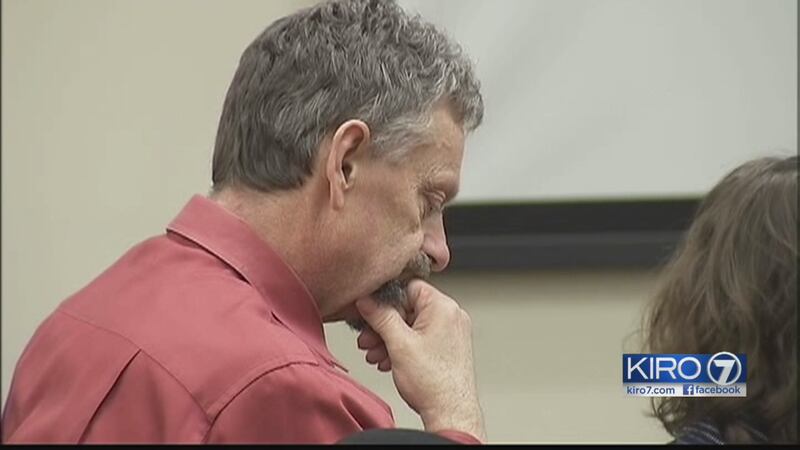The case of David Morgan, who is accused of setting his ex-wife on fire and nearly killing her, ended in a mistrial on Monday.
Brenda Welch went to Morgan's Lynnwood home in November 2014 to pick up their daughter.
Firefighters later found Welch unconscious in Morgan's garage -- burned and beaten.
Morgan is charged with arson, and attempted murder.
Welch suffered a serious injury and does not remember much of what happened to her. Her fiance’s father, Tom Anderson, attended proceedings on Monday.
“Brenda’s afraid, and I don’t blame her. And I don’t know how they explain it to her – or who’s going to explain it to her,” Anderson said, referring to the mistrial.
On Monday, Morgan’s defense attorneys called for a mistrial, when they discovered that one of the state’s expert witnesses, a fire investigator, felt that the fire was intentionally set.
Mikael Makela is one of two fire experts who testified Monday. Makela told the jury he felt it was arson.
Makela was able to visit the scene and currently serves as the Washington chapter president of the International Association of Arson Investigators.
Because Makela’s position on this was unknown to Morgan’s attorneys, the defense team did not have a chance to provide their own expert witness to contradict that testimony.
“Have you expressed this opinion to anyone prior to today?” asked Donald Wackerman, Morgan’s attorney.
Makela said that he had told prosecutors of his position three or four times since August. But Wackerman said that was never relayed to his team.
Paul Stern, a Snohomish County deputy prosecutor, said he would need to review all communications that were ever conducted between them and Makela.
Still, Judge Joseph Wilson said, “Prejudice is overwhelming. I am declaring a mistrial in this matter.”
Makela had followed earlier testimony from Ed Hardesty, the Snohomish County fire marshal.
Hardesty told the jury, “I did not determine a point of origin.”
%
%
When asked whether he determined an exact cause? He answered that he did not.
Hardesty told the jury he ruled out the possibility of an accidental fire, but did not rule out the possibility of an intentional fire. He did not find physical evidence one way or the other and did not make a determination.
Wackerman said the defense believed that Makela shared the same opinion, until Makela took the stand.
“You can’t unring a bell, so you can’t ask people to unhear what they’ve heard,” Wackerman said.
There will be a hearing in two weeks to determine whether they start all over with another trial, or if the defense will succeed in getting the case dismissed.
Cox Media Group








